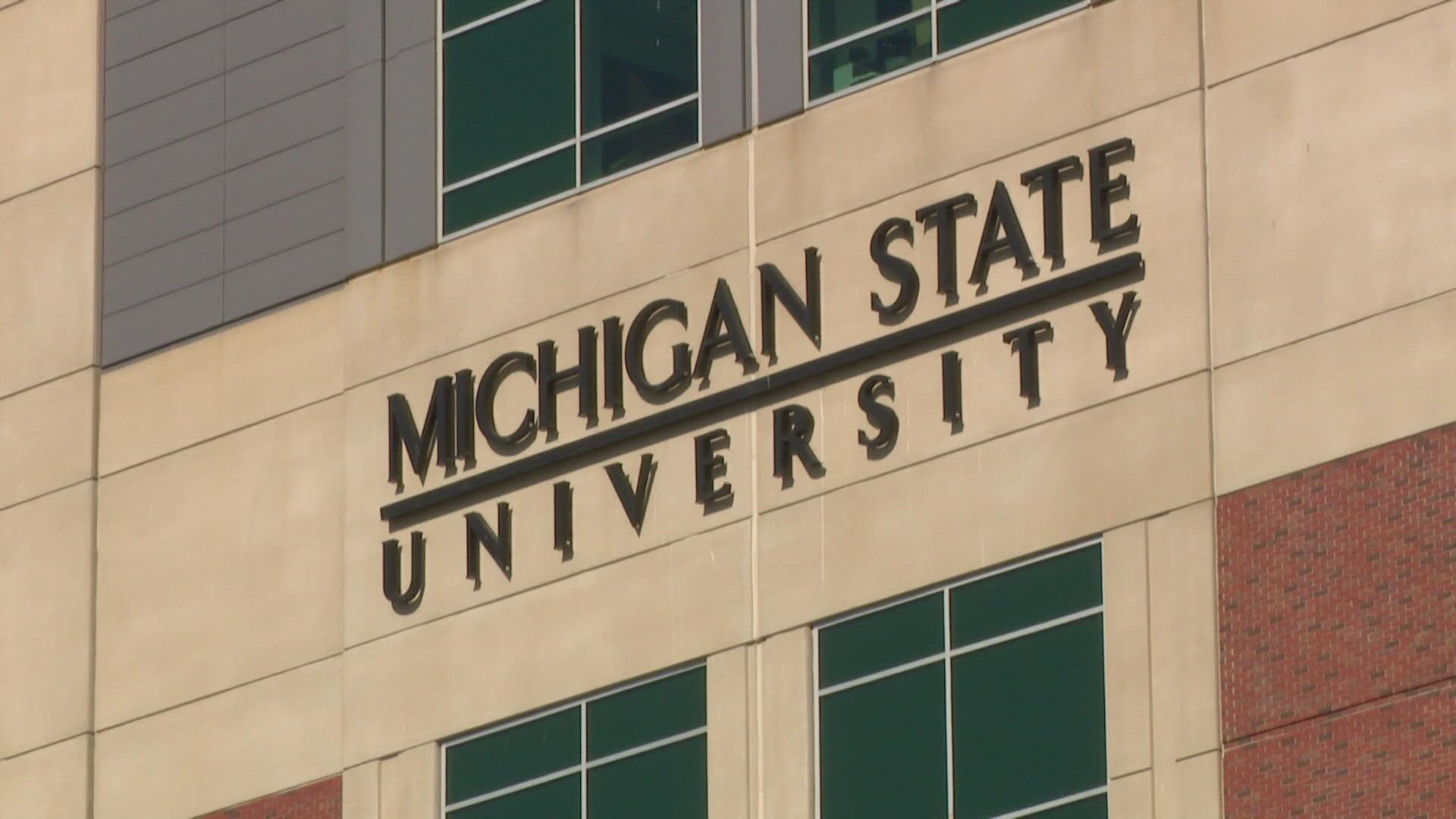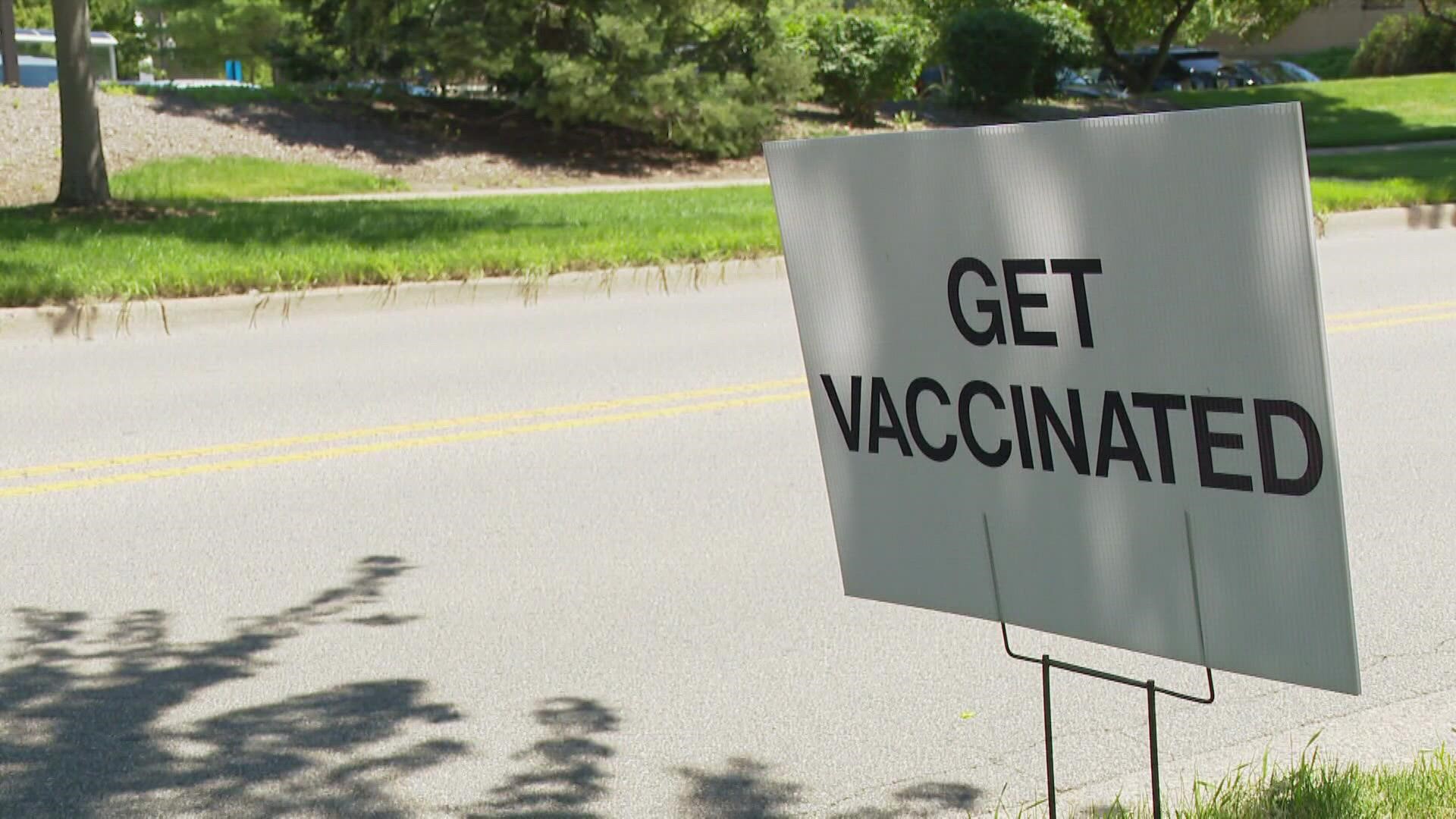EAST LANSING, Mich. — Last week, Michigan State University (MSU) administrative staff member, Jeanna Norris, filed a lawsuit against the university over its vaccine mandate. Having previously contracted and recovered from the virus in November of 2020, she claims she has "natural immunity."
Tuesday afternoon, Judge Paul Maloney denied the motion for a temporary restraining order, claiming Norris had not shown a strong likelihood of success in her case.
"Taking all of these arguments into consideration," read court documents, "because Plaintiff does not have a constitutionally protected property interest in her employment position at MSU, and is not being denied any constitutional rights under the Fourteenth Amendment, nor is employment a fundamental right under the United States Constitution, this matter will receive rational basis scrutiny... And for Plaintiff to win under this standard of review, Plaintiff must show that MSU’s vaccine mandate is not rationally related to a legitimate governmental interest, i.e., the health and safety of the public. Plaintiff is unlikely to win under rational basis review. Therefore, at this stage, Plaintiff has not shown a substantial likelihood of success on the merits."
The judge did schedule a hearing for the notion of a preliminary injunction for Sept. 22.
Jenin Younes, litigation counsel for the New Civil Liberties Alliance, which filed the lawsuit on behalf of Norris, called the vaccine mandate "irrational" and "arbitrary."
"She has had two recent antibodies tests that establish durable and robust immune protection," said Younes. "So, for that reason, the vaccine is medically unnecessary for her, and she does not want to get it."
Expert witnesses for the lawsuit claim Norris, and others who had COVID-19, have the same or more natural immunity to the virus than if they received the vaccine.
The Centers for Disease Control and Prevention (CDC) said research has not shown how long someone is protected from the virus after recovering from COVID-19. Also, vaccination helps protect a person even if they already had the virus.
"Delta seems to be changing everything," said Dr. Liam Sullivan, an infectious disease doctor at Spectrum Health in a pre-produced video.
Sullivan said he believes it is necessary to get the COVID-19 vaccine, even if someone has already had the virus.
"There is mounting evidence," said Sullivan. "Starting with a CDC study in Kentucky recently, that showed people who had a previous history of COVID infection and did not get vaccinated, were almost two and a half times more likely to get reinfected if they did not get vaccinated. And that was due to the Delta variant."
MSU states there could be disciplinary action if students, staff or faculty do not receive the vaccine. The deadline to be vaccinated is Tuesday, Aug. 31. Norris is still currently employed by the university. There are exemptions for medical or religious reasons, but Younes said that does not apply to previously infected individuals.
"I hope that we can get a court decision recognizing this," said Younes, "and that the university, along with so many other universities and other public actors, will be forced to change their mandates in accordance with that decision."
The Supreme Court denied hearing a case against Indiana University's vaccine requirement, allowing it to enforce the mandate. Judge Maloney cited this case in denying Norris' motion.
The full court documents can be read below:
RELATED VIDEO: More vaccine mandates possible with full approval for Pfizer COVID-19 vaccine
►Make it easy to keep up to date with more stories like this. Download the 13 ON YOUR SIDE app now.
Have a news tip? Email news@13onyourside.com, visit our Facebook page or Twitter. Subscribe to our YouTube channel.


